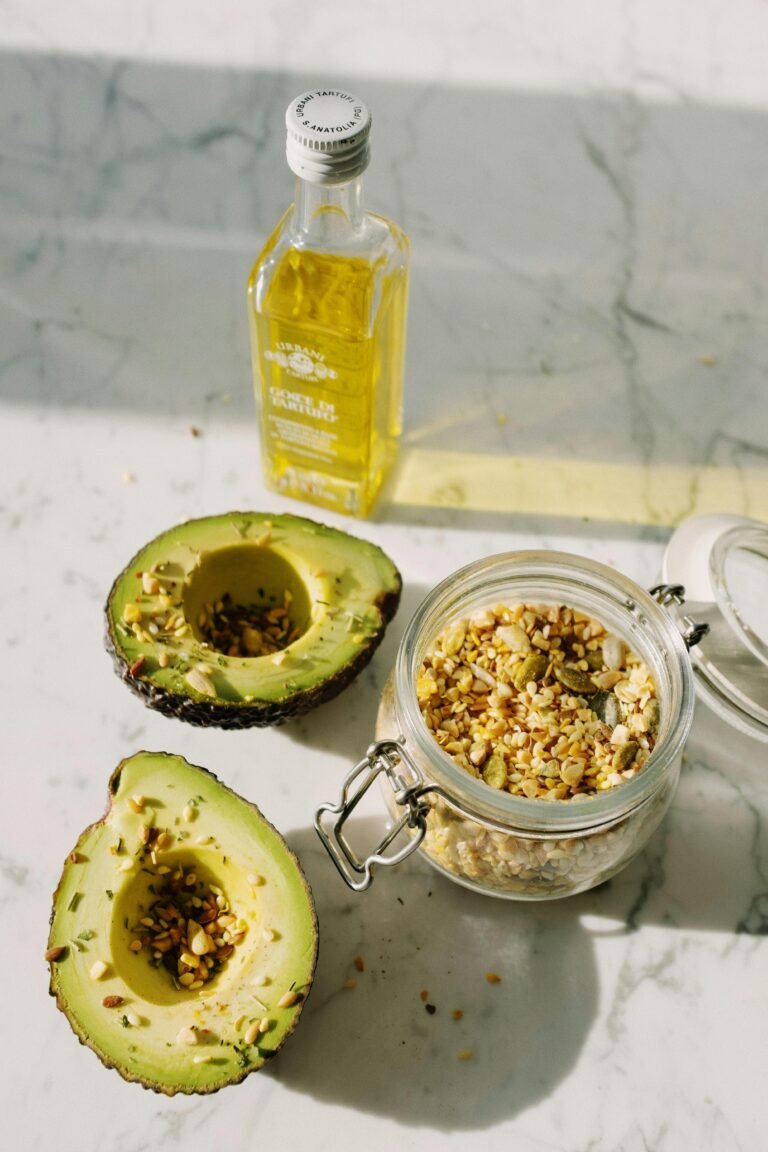Common Nutrition Myths: Debunked with Practical Tips for Healthy Eating

When it comes to nutrition, it seems like everyone has an opinion. From fad diets to age-old advice passed down through generations, it can be hard to separate fact from fiction. In this post, we’ll debunk common nutrition myths and help you understand how to make more informed, balanced choices for healthy eating.
Table of Contents
- Myth 1: Eat Less Fat to Lose Weight
- Myth 2: Calories Are All Created Equally
- Myth 3: Carbs Should Be Avoided
- Myth 4: Eggs Increase Cholesterol Levels
- Myth 5: You Should Stop Using Salt Completely
- Myth 6: You Need to Eat Small Meals Throughout the Day
- Myth 7: Skipping Breakfast Causes Weight Gain
Myth 1: Eat Less Fat to Lose Weight
For years, fat has been considered the enemy when it comes to weight loss. This myth persists due to outdated beliefs that all fats contribute to weight gain and heart disease. However, the truth is that not all fats are created equal.
Healthy fats, such as those found in olive oil, avocados, and nuts, are essential for your body’s overall functioning. These fats play a key role in hormone production, nutrient absorption, and even weight management. Studies show that healthy fats can increase feelings of fullness, which may help prevent overeating.
Practical Tip:
Incorporate heart-healthy fats into your diet by drizzling olive oil over salads, snacking on a handful of almonds, or adding avocado to your morning toast. Focus on moderating your intake of saturated fats found in processed foods, while embracing the benefits of unsaturated fats.
Myth 2: Calories Are All Created Equally
Many people believe that all calories are the same, and as long as you stay within a calorie limit, you’ll achieve your weight loss or health goals. However, this couldn’t be further from the truth. While calories measure the energy a food provides, the type of food you eat has a significant impact on how your body processes these calories.
For instance, 200 calories of a sugary snack won’t fuel your body the same way as 200 calories from vegetables, lean protein, or whole grains. Nutrient-dense foods provide essential vitamins, minerals, and fiber that keep you feeling full and energized, while empty-calorie foods, like sweets, often lead to energy crashes and hunger soon after eating.
Practical Tip:
Instead of focusing solely on calorie counting, emphasize the quality of your food. Choose whole, unprocessed foods such as leafy greens, lean proteins, and whole grains that nourish your body and support overall health.
Myth 3: Carbs Should Be Avoided
Carbohydrates often get a bad reputation, especially with the rise of low-carb diets like keto. However, not all carbs are harmful. In fact, they are a vital part of a balanced diet, providing your body with energy and essential nutrients.
The key is choosing the right types of carbohydrates. Complex carbs, such as those found in whole grains, fruits, and vegetables, are packed with fiber, vitamins, and minerals. These carbs digest more slowly, helping to stabilize blood sugar levels and keeping you fuller for longer. On the other hand, refined carbs, like white bread and sugary snacks, can cause blood sugar spikes and contribute to weight gain.
Practical Tip:
Swap refined carbohydrates for whole grains like brown rice, quinoa, and oats. Incorporate a variety of colorful fruits and vegetables into your diet for a healthy balance of carbs that fuel your body without the crash.
Myth 4: Eggs Increase Cholesterol Levels
Eggs have been unfairly vilified for years due to their cholesterol content. Many people believe that eating eggs, especially the yolk, can raise cholesterol levels and increase the risk of heart disease. However, research has shown that for most people, dietary cholesterol has a minimal effect on blood cholesterol levels.
In fact, eggs are a nutrient powerhouse. They contain high-quality protein, essential vitamins like B12 and vitamin D, and antioxidants that support eye health. Studies suggest that eating eggs in moderation can be part of a heart-healthy diet without raising the risk of heart disease for most individuals.
Practical Tip:
Enjoy eggs as a regular part of your diet, but balance them with other nutrient-rich foods like vegetables and whole grains. If you have specific health concerns, such as a history of high cholesterol, consult your healthcare provider about your egg consumption.
Myth 5: You Should Stop Using Salt Completely
Salt has been demonized in many diets, especially when it comes to heart health and blood pressure. While it’s true that excess sodium can raise blood pressure and contribute to health issues, cutting out salt entirely is neither necessary nor advisable for everyone.
Sodium is an essential mineral that helps regulate fluid balance, supports muscle function, and maintains nerve signals. The key is moderation. The real issue lies in the high levels of sodium found in processed foods, rather than the small amounts of salt added to home-cooked meals.
Practical Tip:
Instead of eliminating salt entirely, focus on reducing your intake of processed foods like canned soups, packaged snacks, and processed meats, which often contain hidden sodium. When cooking at home, use salt in moderation and enhance flavor with herbs, spices, and other seasonings.
Myth 6: You Need to Eat Small Meals Throughout the Day
The idea that eating small meals throughout the day boosts metabolism and helps with weight management has been a popular belief for years. While this strategy works for some people, it’s not a universal rule for healthy eating. For many, eating three balanced meals a day or practicing intermittent fasting can be just as effective.
The truth is, there is no one-size-fits-all approach when it comes to meal frequency. It’s more important to listen to your body and eat in a way that aligns with your hunger levels, activity, and schedule.
Practical Tip:
Find an eating pattern that suits your lifestyle and makes you feel good. Whether it’s three meals a day, small meals every few hours, or intermittent fasting, the key is to ensure that your meals are balanced and include a variety of nutrient-rich foods.
Myth 7: Skipping Breakfast Causes Weight Gain
Breakfast has long been touted as the most important meal of the day, with many people believing that skipping it leads to overeating and weight gain later. However, recent studies have shown that skipping breakfast does not necessarily cause weight gain or negatively impact metabolism.
Some people thrive with a morning meal, while others may feel better starting their day with just a cup of coffee and waiting until lunch to eat. It’s important to find what works best for you, rather than forcing yourself to eat breakfast because of outdated advice.
Practical Tip:
If you enjoy breakfast and find that it helps you stay energized, go for it. If you’re not a breakfast person, that’s okay too! Just be sure to make healthy choices for your other meals to maintain a balanced diet throughout the day.
Conclusion
There are plenty of nutrition myths out there, and it can be difficult to know what to believe. By debunking these seven common myths, we’ve highlighted the importance of focusing on nutrient-dense, whole foods and adopting a balanced, personalized approach to eating. Healthy eating isn’t about strict rules or fads—it’s about nourishing your body in a way that works for you.
So, the next time you hear advice about cutting out entire food groups or obsessing over calorie counts, remember to take a step back and focus on what’s really important: balance, variety, and listening to your body. What myths have you heard, and how have they impacted your approach to healthy eating?
References
- Impact of dietary fats on health and cardiovascular disease
- Dietary fats and their relation to obesity
- Nutrient-dense foods and caloric intake impact
- Dietary cholesterol and blood cholesterol levels
- Sodium intake and blood pressure: balancing sodium in the diet
- Meal frequency and its impact on metabolic health
- Skipping breakfast and its relationship to weight management






